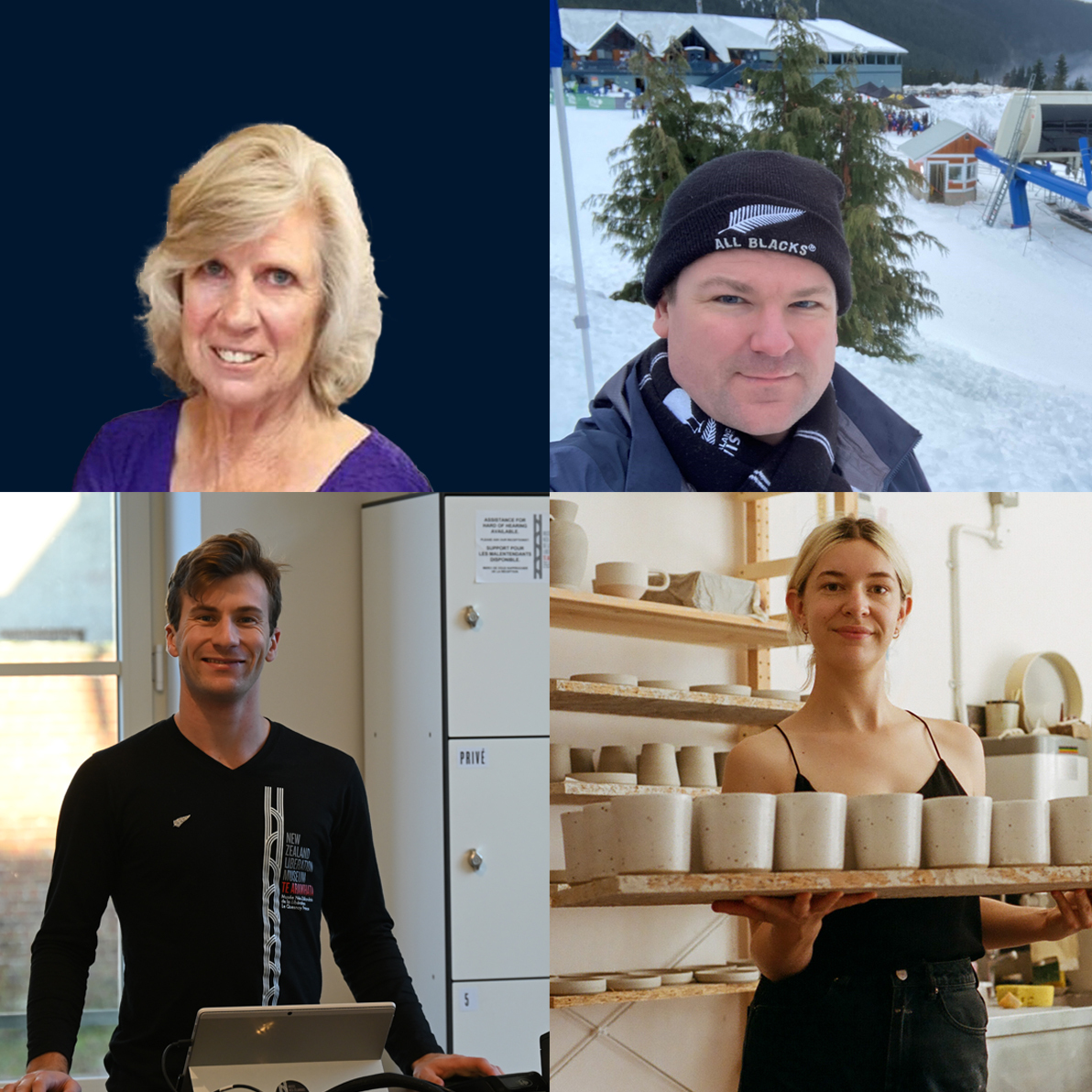Lessons from a pandemic
This week the global conversation at Expo 2020 turns to travel and connectivity. Closed borders have had an incredible effect on New Zealand’s businesses and no one has been more affected than the tourism industry. Many businesses have been unable to survive the pandemic and for those that have, remaining connected to overseas markets has been a challenge. We spoke to several of our Kea community including founder of the Jucy group Tim Alpe and Air New Zealand CEO Greg Foran about the lessons they have learnt and why they remain positive about the future.
Co-founder of Jucy group, Tim Alpe can still remember the point when the company he built from scratch lost 90% of its revenue overnight. With millions of dollars of refund requests flooding in and borders around the world slamming closed faster than an angry teenager’s bedroom door, there was no way to tell what the future held.
“It’s something you can’t predict or plan for. For our sector in particular, younger travellers and backpackers, the market was completely decimated overnight. We relied heavily on the US and Europe travellers and all of a sudden they stopped coming, there is nothing you can do, you can’t plan for that.”
Tim and his brother Dan were forced to bring in external capital, which resulted in the three businesses, rentals, snooze and cruise being split up. Dan continued with the rentals business and Tim focussed on the POD hotels. Despite describing the last few years as ‘horrific’ Tim says he 100% believes New Zealand will once again become a top tourist destination.
“We have a new 300 bed POD hotel opening in central Auckland in September, it was planned before the pandemic, but the new owners backed it’s completion because they see the opportunities in the industry. When it opens it will be the largest hostel accommodation in New Zealand. We still have a bit of a rough time to get through but once the borders properly reopen people will flood in, there is a lot of pent up demand. New Zealand is a bucket list destination, people will be back, it’s just going to take awhile.”
The belief that the market will come back bigger and better is one shared by Air New Zealand CEO Greg Foran. He believes the pandemic has given his company time to reflect and reprioritise in order to ensure they come back stronger with the best travel experience possible.
“We’ve been able to look at our domestic and international network and figure out how to offer our customers the best routes, flights and customer experience. This goes all the way through to our future aircraft cabin experience – we’re using customer input to create the best international travel experience for when borders open. Our new international aircraft coming 2024 will offer an incredible travelling experience. Some awesome new innovation is on its way.”
“We know the future of Air New Zealand must be sustainable, and we think it’s the single largest challenge we have, so we’ve been exploring how to accelerate the reduction of our carbon emissions. By far the biggest contribution to decarbonisation will come from Air New Zealand accessing Sustainable Aviation Fuel (SAF) and we made good progress in 2021 towards making SAF a reality in New Zealand. We’ve also put out the call out to traditional aviation manufacturers and entrepreneurs and innovators worldwide to help us get a zero emissions aircraft in the air in the next five years.”
Tourism marketing and business development expert Rēnata West says talking about new innovations and ideas is one of the best ways businesses can stay connected ahead of borders reopening. The California based Kiwi says businesses should be looking to promote what they have been doing over the last two years to refine their products and experiences and clearly show how they have altered their business practices to be more COVID-safe.
“In plain terms, if one of your key selling points was a buffet experience, you may want to think about how eating communally will be received by consumers who have largely only eaten outdoors at tables six feet apart for the last two years.”
Rēnata says his Los Angeles based travel business, Pacific Storytelling, is starting to see an increased interest in the New Zealand market, and notes that a change to the way people work is creating new and exciting opportunities.
“People in North America have some of the lowest levels of paid holidays in the world, but the pandemic has created a wider acceptance of remote working, this is offering people more flexibility and option to travel further afield. It also allows them to spend more time in a location and have a more meaningful experience.”
“During the pandemic Aotearoa did a really good job showing off the country through digital tools like video and interviews with local personalities. This allowed the country to be brought into the living rooms and home offices of those in North America and now we are seeing this translate into an appetite to visit. We need to keep up that Kiwi storytelling to highlight our New Zealand story, the things like culture and Maori heritage that make Aotearoa unique, the things you won’t find anywhere else.”
Making the most of the Kiwi storytelling is something New Zealand Story CEO David Downs says all export businesses can benefit from, not just those in the tourism industry.
“Having an association with brand New Zealand is a great way of boosting your business. Our research data tells us that ‘Brand NZ’ is still strong, and while we wait for borders to reopen it’s really critical that all businesses are able to communicate a strong brand story and have a good online presence in order to stay front of mind in-market.
David says he hopes the lessons learned in the pandemic will continue to benefit businesses well into the future.
“As we start to emerge from this crisis I hope that people don’t just go back to business as usual. Instead we should be taking the lessons we have learned and looking at what needs to be fixed or changed. After all, the best time to fix the roof is when it’s not raining.”
Both Greg and Tim have had time to reflect on the past two years. For Tim the crisis made him realise some things really are just out of your control.
“I spent a lot of time panicking and sweating over stuff I couldn’t control, and as much as it’s devastating and stressful, I learnt you can’t take it personally. I think time is a big healer, you think about things you did or things you could have done over and over again, but eventually you get to a place where you are like ok we will get through this. The tourism sector in New Zealand will grow significantly in the future. I think the key for many businesses has been to survive, now they need to revive and hopefully in the not too distant future they will thrive.”
Greg says if he could go back to 2019 and give himself one piece of advice it would be the reminder to ‘panic slowly.’
“Air New Zealand has been around for a long time and has weathered its fair share of storms with level headed people calmly navigating constant change and uncertainty. Giving yourself a moment to gather all the information is crucial and I would say it’s how we’ve gotten through the countless challenges thrown our way. Grit is also an important quality at a time like this, two years in and we still have closed borders. It takes real resilience and you need to pace yourself, so I would say to people keep one eye on today and the other on tomorrow.”
If you would like to hear more about this topic or hear more of Tim’s story please join our online World Class speaker series. Find out more here

 MENU
MENU









